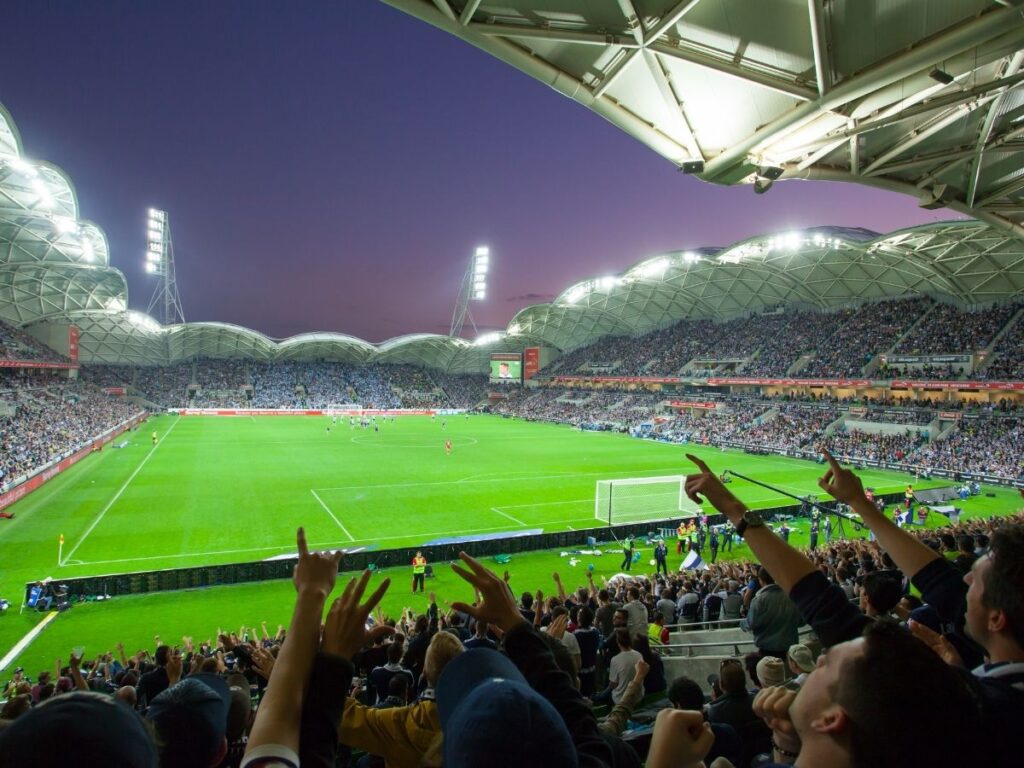Boost your betting experience and get up to $200 bonus right now!
The decision by the Confederation of African Football (CAF) to move the Africa Cup of Nations (AFCON) 2025 to a winter schedule has ignited passionate conversations across the football community. Traditionally kicking off in the early months of the year, this iconic event will now unfold between late December and mid-January, blending festive celebrations with the continent’s premier football extravaganza. This shift is not just a calendar tweak but a bold strategic move that promises to reshape the rhythm of African football and echo far beyond the continent.
In this exploration, we will delve deep into the cascading effects of this scheduling shift, from the footballing calendars of African nations to the complex interplay with European club commitments. Gather insights into how Morocco’s hosting ambitions intertwine with this timeline, how broadcasting giants like BeIN Sports and sponsorship heavyweights such as Nike, Adidas, and Coca-Cola are positioned for this new chapter, and why fans across Africa may witness a transformed festival of football, fervor, and holiday spirit. Not to mention the challenges that come with capturing global eyeballs amid a crowded festive sports calendar, and how CAF’s vision might turn these hurdles into milestones.
- The strategic rationale behind AFCON 2025’s winter move
- Impact on African national teams and players’ club commitments
- Morocco’s unique role and preparations as host nation
- Broadcasting, sponsorship, and commercial implications
- Potential challenges and opportunities for African football’s global profile

Sommaire
ToggleStrategic Reasons Behind the Shift of AFCON 2025 to a December Start
The CAF’s announcement to stage AFCON 2025 from December 21 through January 18 was more than a mere rearrangement of dates; it is a strategic pivot responding to a complex global football ecosystem. Historically, African nations have struggled with the perennial clash between AFCON’s traditional January/February schedule and the European club season running from August through May. African stars, many starring for clubs signed with football giants such as Puma, Umbro, or managed with Visa-backed transfers, have faced impossible choices—joinder between club obligations enveloped in the heat of domestic and continental competitions, and national pride on the continent’s biggest stage.
This winter timing mitigates the infamous “club vs. country” dilemma. It creates a window after the heated mid-season fixtures in Europe and other regions, easing the workload for African internationals. Shifting the tournament away from the European January transfer window and the UEFA Champions League’s later group stages ensures fewer conflicts. For instance, European teams relying on African talent affiliated with brands like Adidas or Nike can breathe easier knowing their stars won’t be forced to leave at the busiest time of the season.
Furthermore, December coincides with a festive atmosphere globally. CAF aims to leverage this energy to elevate AFCON beyond a continental competition and transform it into a celebratory event that resonates with fans worldwide. This move also positions African football to gain enhanced attention from global broadcasters like BeIN Sports, which already cover a plethora of major football tournaments across continents.
Here is a summarized table of key strategic considerations leading to the move:
| Aspect | Traditional Schedule (Jan/Feb) | Winter Schedule (Dec/Jan) | Impact |
|---|---|---|---|
| European Club Calendar | Clashes with key league and UEFA matches | Less overlap with critical club games | Facilitates player availability |
| Player Fatigue and Injuries | High risk due to congested schedule | Better rest and preparation time | Improved player performance |
| Global Viewership | Competes with global events and holidays | Opportunity to capture festive audience | Enhanced marketing potential |
| Host Nation Advantage | Limited tourist season | Peak tourist influx and celebrations | Boost local economy and fan engagement |
- Eases player release constraints for clubs
- Aligns with festive season to increase fan engagement
- Strengthens Africa’s position on the global football map
- Facilitates sponsorship activation for partners like TotalEnergies and Standard Bank
All in all, the strategic realignment is CAF’s signal that African football is carving out its own space and narrative on the global stage, refusing to be squeezed by external timetables.

Implications for African National Teams and Players Navigating Club Commitments
The 2025 winter schedule offers a fresh chapter for African nations, marked by complex balancing acts. The traditional mid-season exodus of star players stripping national teams of regular-season rhythm will be lessened. African players, who ply their trades in Europe’s top tiers under contracts overseen jointly by corporate giants like Coca-Cola and outfitted by companies such as Nike and Puma, now have a more balanced calendar, potentially reducing burnout and injury risks.
National coaches will gain a strategic advantage by working with players who have had less travel and fewer matches in the immediate lead-up, enabling better training camps and tactically sharper teams. This could elevate the overall quality and competitiveness of the tournament, with trickles down reaching even developmental squads. For instance, under-23 talents, often spotlighted in the Africa Cup’s rising stars, may enjoy improved exposure and recovery time thanks to this schedule shift.
However, challenges lurk too. The December schedule overlaps with some end-of-year club tournaments and holiday breaks, raising concerns about player fatigue and mental health. Coaches and medical staffs will be pressed to innovate recovery and rotation plans better.
We can outline the direct effects on players and teams as follows:
- Reduced mid-season club conflicts: Players more readily released from clubs due to less interference with critical fixtures.
- Improved physical readiness: Healthy players due to spread-out fixtures and better recovery windows.
- Possible scheduling conflicts: End-year club friendlies or local tournaments may still clash.
- Enhanced preparation time: National teams have greater flexibility with training camps.
- Player welfare focus: Clubs and federations intensify workload management to reduce burnout.
African football fans eager to witness the drama, passion, and artistry unfolding on the pitch can also expect sponsorship-driven innovations. Imagine players sporting cutting-edge Nike and Adidas gear powered by sponsorship deals with TotalEnergies, bringing futuristic kits and tech enhancements to the game’s aesthetics. This will be a stage both professional athletes and commercial partners alike will cherish.
Morocco’s Hosting Ambitions and Readiness for the AFCON Winter Edition
Morocco is no stranger to ambition. Having previously hosted AFCON in 1988, the kingdom is stepping into the limelight again with renewed vigor and purpose. Hosting the tournament during the festive period promises to amplify Morocco’s status as an emerging global sports hub. The timing could synchronize beautifully with Morocco’s peak tourist season, providing a perfect backdrop for a football carnival that attracts visitors, locals, and football lovers from around the world.
Morocco’s infrastructure investments have been gradual but surefooted, with new stadiums equipped with world-class facilities featuring Puma and Umbro branding among others. The government and CAF’s collaboration ensures seamless logistics, transport, and fan experiences, signaling Morocco’s readiness to face the global spotlight.
This hosting opportunity is not just about sport but about sending a broader message of African excellence and hospitality. By staging AFCON during December and January, Morocco aligns itself with both global sports calendars and festive tourism waves, creating unique experiences for fans, teams, and sponsors alike.
Key points about Morocco’s preparations and advantages include:
- State-of-the-art venues: Stadiums designed to meet FIFA and CAF standards while integrating modern sports brand collaborations.
- Transport and infrastructure: Upgraded airports, metro systems, and roads to handle increased traffic.
- Tourism synergy: Festive season raises tourist influx, promoting local economy through hospitality and retail.
- Security enhancements: Tightened safety protocols ensuring a secure environment.
- Cultural events: Football celebrations paired with Moroccan cultural displays attracting diverse audiences.
| Aspect | Details |
|---|---|
| Stadiums | 5 major stadiums including the Casablanca Mohammed V Stadium, all renovated and modernized |
| Transport | Expansion of city metro lines plus international airport upgrades for smooth fan movement |
| Hosting Dates | December 21, 2025 – January 18, 2026 |
| Safety | Comprehensive security plan coordinated with local and international agencies |
| Tourism Impact | Expecting a 30% boost in tourist arrivals during the tournament window |
With sponsors like Standard Bank and Visa deeply integrated into the local economy and football ecosystem, Morocco’s event is positioned for success, blending financial muscle with cultural grandeur.
Broadcasting, Sponsorship, and Commercial Stakes for a Winter AFCON
The shift to a December schedule presents both ripe opportunities and notable challenges for broadcasters, sponsors, and commercial partners invested in AFCON’s success. BeIN Sports will once again hold a central broadcasting role, tasked with navigating a congested sports calendar that includes European football, the NFL’s playoffs, and other global events. The challenge? To carve out space for AFCON to shine brightly in homes worldwide while telling the stories of African footballers battling for glory.
Sponsors like Nike, Adidas, Puma, TotalEnergies, Standard Bank, and Coca-Cola will capitalize on the heightened attention by launching integrated campaigns timed with festive marketing blitzes. The tournament becomes a showcase where football meets commerce in full force—jerseys flood markets, branded fan zones spring up in host cities, and the buzz reverberates through social media and live viewing parties.
Commercially, the winter AFCON aligns well with holiday shopping sprees and consumer engagement peaks, providing sponsors with amplified reach and return on investment. The tournament also allows for innovative digital and tech partnerships, including possible collaborations with apparel tech advancements that Puma and Nike have been pioneering, introducing fans to smart kits, enhanced viewing experiences, and wearable tech.
- Broadcasting challenges: High competition for viewer attention amid global sports events
- Sponsorship advantages: Leveraging holiday seasons for marketing and merchandise sales
- Digital engagement: Boosting fan interaction via social media, apps, and interactive broadcasts
- Revenue opportunities: Expanded commercials, branded content, and VIP experiences
- Brand activations: Enhanced stadium branding and sponsor-led fan zones
These commercial dynamics inform an exciting narrative about how African football integrates with global sports business, setting new standards for marketing sophistication and fan experiences.

Challenges and Prospects for African Football’s Global Reputation
The winter timetable introduces a fresh flavor but also complexity. African football has long battled for recognition on the global stage, and AFCON’s move to December 2025 might be its boldest bid yet to demand global attention. The convergence with major European fixtures and a crowded broadcast calendar tests the tournament’s ability to stand out.
Even with the risk of being overshadowed, there lies an immense opportunity: repositioning African football as a vibrant, must-watch spectacle during a festive period enjoyed by billions. This move could redefine football narratives around African nations, their players, and their passionate fans. It sends a message that African football is dynamic, strategic, and central to the global game.
Moreover, the timing allows players returning to European clubs to carry AFCON momentum, potentially inspiring second halves of club seasons and Europe’s Champions League knockout stages. This cross-pollination between club success and national team triumphs paints compelling story arcs for broadcasters and fans alike.
- Increased global football dialogue: AFCON in winter sparks conversations on west-to-east football season adjustments
- Fan engagement challenges: Competing for attention with Christmas and New Year festivities but also potential for new traditions
- Player exposure: Showcase rising African stars to a wider, international audience
- Economic uplift: Boost to local economies through tourism and sponsorship infusions
- Sports diplomacy: Strengthening Africa’s political and cultural ties via football
| Challenge | Potential Opportunity |
|---|---|
| Broadcast saturation during festive season | Capturing festive audiences hungry for football entertainment |
| Logistics and player fatigue management | Innovative medical and coaching strategies enhancing player welfare |
| Global market competition | Leveraging unique African storytelling and talent |
To witness the next level of African football, fans can follow AFCON 2025 match highlights and previews at rktfootball.com and rktfootball.com, ensuring they stay connected with all the drama, upsets, and triumphs as they unfold on this new winter stage.
Join today and grab up to $200 bonus for your next bets!
Content assisted by AI. This article was created in whole or in part with the help of artificial intelligence.


